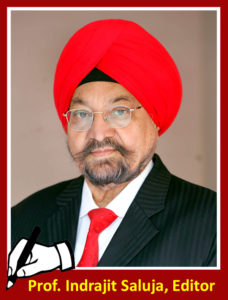 In a troubling revelation that raises serious concerns about the state of Indian democracy, recent figures have unveiled a distressing trend of criminals finding their way into the hallowed halls of the country’s legislatures. The infiltration of criminal elements into the political sphere poses a significant threat to the foundations of democratic governance and calls for urgent action to address this persistent issue.
In a troubling revelation that raises serious concerns about the state of Indian democracy, recent figures have unveiled a distressing trend of criminals finding their way into the hallowed halls of the country’s legislatures. The infiltration of criminal elements into the political sphere poses a significant threat to the foundations of democratic governance and calls for urgent action to address this persistent issue.
According to the latest available data, a shocking number of lawmakers in the Indian legislatures have criminal backgrounds. The figures, compiled from various sources, paint a grim picture of the growing influence of individuals with criminal records in the corridors of power. It is estimated that nearly one-third of Members of Parliament (MPs) and Members of Legislative Assemblies (MLAs) across the country have criminal cases pending against them.
Of the 4001 MLAs in the country, 1,136 or 28% have serious criminal cases against them. These are the cases that would lead to conviction of 5 years or more. 47 MLAs have murder cases, 181 with attempt to murder, 114 with crimes against women, and 14 with rape charges. The ruling BJP has the highest number with 337 MLAs with serious charges, followed by Congress Party with 194. Between 32% to 43% MLAs in smaller parties have serious criminal cases. Over 120 MPs have serious criminal cases against them. The chances of a candidate with a criminal record winning are 4 times higher than someone with a clean record. Average assets of MLAs are worth Rs 13.63 crore. ( $1,660,750) (Source: ADR).
The presence of such individuals in positions of power not only erodes public trust in the political system but also raises concerns about the effectiveness of legislative bodies in upholding the rule of law.
One of the primary reasons behind this disheartening phenomenon is the nexus between crime and politics. Many criminals see politics as a means to acquire power, influence, and immunity from prosecution. They exploit the loopholes in the system, including slow judicial processes and inadequate scrutiny during elections, to establish themselves as political figures. Moreover, some criminal elements use their ill-gotten wealth to fund their election campaigns, thereby ensuring their entry into legislatures.
The repercussions of having legislators with criminal backgrounds are far-reaching. Such individuals often prioritize their personal interests over public welfare and governance, using their positions to further their own criminal activities. They can manipulate laws, obstruct justice, and undermine the very foundations of democracy. This not only impedes the delivery of justice but also perpetuates a culture of impunity, where the rule of law becomes subservient to the whims and fancies of the powerful.
Although the issue of criminalization of politics is not new, it demands urgent attention and comprehensive reforms. There have been sporadic efforts by the judiciary and civil society to curb this menace, but they have not been sufficient to address the scale of the problem. It is imperative for political parties, law enforcement agencies, and the judiciary to work in tandem to tackle this issue effectively.
First and foremost, political parties need to adopt stricter internal screening mechanisms to ensure that candidates with criminal records are not given tickets to contest elections. They should set a precedent of ethical conduct and take proactive steps to dissociate themselves from individuals facing serious criminal charges.
Simultaneously, law enforcement agencies must expedite the investigation and trial of cases involving legislators. Timely justice is crucial not only for holding criminals accountable but also for deterring others from entering politics with nefarious intentions.
The establishment of special courts to handle cases against politicians could expedite the judicial process and instill confidence in the public. Furthermore, electoral reforms are essential to maintain the integrity of the democratic process.
The Election Commission of India should collaborate with other stakeholders to devise stringent guidelines for candidates, including mandatory disclosure of criminal records and their sources of funding. Transparency and public awareness campaigns can play a vital role in empowering voters to make informed choices.
The judiciary also has a crucial role to play in combating the criminalization of politics. It should take cognizance of the gravity of the situation and ensure speedy disposal of cases involving politicians. Additionally, the courts must actively monitor the progress made in electoral reforms and provide necessary guidance to the government and other concerned agencies.
Addressing the issue of criminals in Indian legislatures requires collective action and unwavering commitment from all stakeholders. It demands a multi-pronged approach that encompasses political will, legal reforms, and public awareness. By eliminating the influence of criminal elements in politics, India can reclaim the sanctity of its legislative bodies and restore public faith in the democratic process.
The time for decisive action is now. The survival of democracy hinges on the ability to rid legislatures of criminal elements, and failure to act swiftly and effectively could have far-reaching consequences for the nation’s governance and social fabric. It is high time for India to reaffirm its commitment to democratic ideals and ensure that its legislatures are sanctuaries of integrity, transparency, and public service.





Be the first to comment